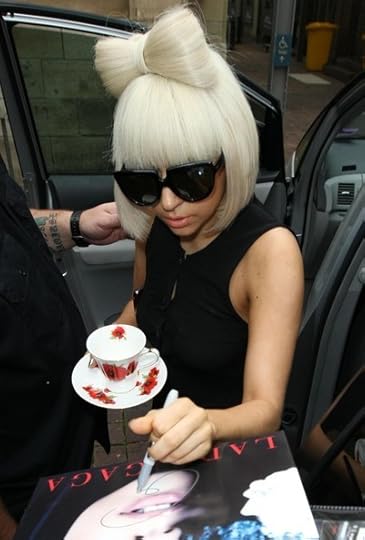How to make your most ordinary scene interesting

Having a cup of tea on the way somewhere
Some scenes crackle off the page as we write them. Others fill logical gaps or give us information, but they can be the dullest scenes to write. How can we liven them up?
I'm a big fan of giving scenes in novels a purpose, but in some manuscripts I come across scenes that are all purpose and no soul. I can see the writer thinking – ho-hum, here's where I introduce the main character's parents over tea, here's where they've got to be in the car going somewhere, here's where he explains a set-up that we need or nothing else will make sense. The writer's weariness slumps off the page.
But elsewhere in the novel, the tension is beautifully done, the characters spring into three dimensions as living, feeling people, with things to hide, issues that are at odds with some of the other people.
Wow, what just happened? It's as if the book has come alive.
No. The writer has come alive.
The reader knows you were bored
When I point out that some of their scenes were flat, the writer usually says they had a hard time writing them. But, they say, I have to get those bits in, don't I?

Going from A to B in a car, the Iron Man way
They're right in a way. For a story to make sense you do have to convey a certain amount of information, background, and there are logical gaps you have to bridge.
But you don't need any scene that you're bored by. Because the reader can tell your heart wasn't in it.
What I do
When I get to a scene that makes me feel this way, I rethink. How can I get my obligatory information across in a way that entertains me? I play a few improv games to make the dialogue snap, I mess around with the location or other things the characters can do until I hit on something that makes it all wake up. (You'll find some of them in my book, Nail Your Novel – Why Writers Abandon Books And How You Can Draft, Fix and Finish With Confidence).
Or make them say the opposite
Another thing you can do if you have an obligatory conversation is make the characters say the opposite of what they needed to say.
In Hitchcock's film of The 39 Steps, there's a scene where the hero, Richard Hannay, is in a hotel room with the woman he's handcuffed to. They're lying on the bed and she's obviously going to ask him if he's really a murderer. And he's got to explain. I was keen to see how the writers would tackle this because -
1 – we're going to get a lot of explanation
2 – it's all stuff we've already seen, yet he obviously has to tell her.
How in holy were they going to keep us interested?
Here, roughly remembered and greatly truncated because I didn't think to write it down at the time, is how that bit of the dialogue went:
She: I've been told murderers have terrible dreams.
He: Only at first. Got over that a long time ago. When I first took to crime,
I was quite squeamish about it….
She: How did you start?
He: Quite a small way, like most of us. Pilfering pennies from other children's lockers at school… a little pocket picking, a spot of car pinching… Killed my first man … In years to come, you'll be able to take your grandchildren to Madame Tussaud's and point me out.
She: Which section?
He: It's early to say. I'm still young … You'll point me out and say, "if I were to tell you how matey I once was with that gentleman, you'd be… "
And so on. He didn't explain how innocent he was. He went ludicrously over the top and claimed he was on his way to being the grand-moff master-criminal. Far from being a plodding piece of exposition, it's a wonderful character piece that makes the characters trust each other a little more.
In a good story we're interested in every scene. So every time you find yourself wearily thinking 'I've got to get this bit in' or 'they have to go here or say this' wait, think and brainstorm. Turn off the autopilot and find a way to write it that excites you.
Do you have any tips for obligatory scenes? Or examples of scenes where writers have found a great way to liven them up? Share in the comments!











